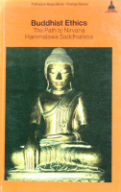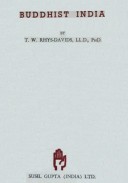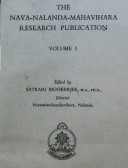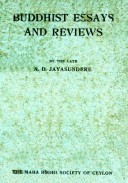Tìm Sách
Sách tiếng Anh-English >> Buddhist Ethics : The Path to Nirvana
Thông tin tra cứu
- Tên sách : Buddhist Ethics : The Path to Nirvana
- Tác giả : Hammalawa Saddhatissa
- Dịch giả :
- Ngôn ngữ : Anh
- Số trang : 206
- Nhà xuất bản : Wisdom Publications-London
- Năm xuất bản : 1987
- Phân loại : Sách tiếng Anh-English
- MCB : 12100000011587
- OPAC :
- Tóm tắt :
Preface
The last half century has seen a steady decline in the teaching, understanding and observance of religious, ethical and moral principles and ideas. The greed for money and material possessions, the overriding desire for personal advancement in day-to- day life, the wish to control other human beings, living things and the environment, both politically and economically, have been the characteristics of the path along which modern civilization has developed in recent years.
This development is contrary to the ordinary, just and reasonable nature of man. As a result, mankind is today confronted with enormous destructive forces. These forces are so powerful and compelling that the minds of most people, especially the young and the mentally weak, cannot grapple with them nor cope with them. Instead, they succumb to these forces. They take refuge in apathy, anarchy, drugs, alcohol and other conduct which leads to superficial feelings of well-being, but do not contribute to any long-lasting or substantial happiness. This decline in the religious, ethical and moral standards has caused a breakdown in the social fabric of mankind.
The only way one can retrieve the situation, the only sensible way forward, is to live according to the religious, ethical and moral standards accepted by one’s own traditions and in understanding and compatibility with those of others.
This book analyses, examines and explains the ethical concepts from a Buddhist point of view. The emphasis is on the ethical concepts accepted by all the schools of Buddhism and, indeed, there is no difference between these concepts among the different schools, either Theravada or Mahayana.
Contents
PREFACE
1. DEFINITIONS AND HISTORICAL BACKGROUND
Scope of the Study of Ethics
Indian Thought in the Sixth Century BC
2. ORIGIN AND SOURCE OF KNOWLEDGE OF THE HIGHEST STATE
The Enlightenment of the Buddha
Life of Gotama Buddha
The Paticcasamuppada
The Self and the Anatta Doctrine
Three Characteristics of Existence
The Mahakaruna of the Buddha
3. THE SIGNIFICANCE OF THE REFUGES
The Threefold Refuges
4. SANCTIONS OF MORAL CONDUCT: THE PRECEPTS
The Five Precepts
The Eight Precepts
The Ten Precepts
5. THE UNDERLYING IDEALS OF THE MORALITIES
Relating the Precepts to the Refuges
Position of the Laity in Early Buddhism
The Buddha’s Approach to His Teaching of the Moralities
Advice to the Individual Layman
6. THE LAYMAN’S DUTIES TO HIS ASSOCIATES
Children and Parents
Husband and Wife
Teacher and Pupil
Servants and Workpeople
Duties Concerned with Means of Livelihood
7. THE LAYMAN’S RELATION TO THE STATE
8. THE ULTIMATE GOAL
Statements of the Aim
Nirvana, Nibbana
Freeing of Mind, Freeing of Insight
Origin of Attainment
notes
index
 Facebook
Facebook
 Google
Google
 Google+
Google+


















